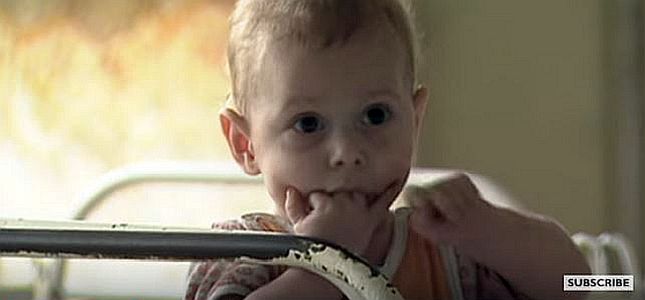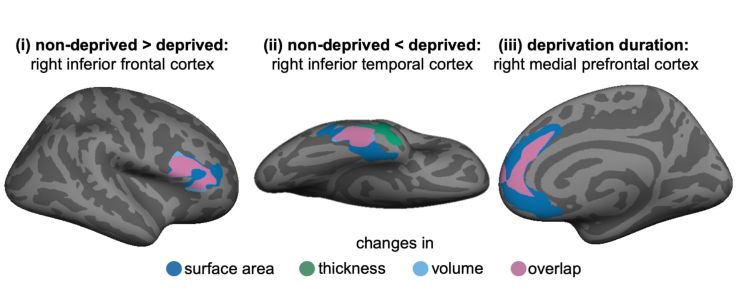
New research shows severe child neglect leads to smaller brain mass as those kids grow into adults

It’s long been accepted that early childhood experiences help contribute to the behavior we exhibit in our adult lives. Many of those adult traits tended to lean more toward mental health traits and / or aberrations. But a new study conducted by King’s College London and released by the National Academy of Sciences shows that those early childhood experiences can also result in physical aberrations.
The study shows that severe child neglect can result in a smaller brain size.
Per the research article, “Early childhood deprivation is associated with alterations in adult brain structure despite subsequent environmental enrichment:”
We studied impact on adult brain structure of a particularly severe but time-limited form of institutional deprivation in early life experienced by children who were subsequently adopted into nurturing families. Institutional deprivation was associated with lower total brain volume in a dose-dependent way.
It’s important to note that this study is based on severe early childhood conditions of neglect and is based on following adopted children who were living through dire conditions in 20th century Romanian orphanages – described in the study as “hellholes.” Children in those Romanian orphanages were literally chained to their cots and were found “rocking, filthy and emaciated,” according to the BBC.
Those parentless children had no toys, no social contact with others and were described as having been physically and psychologically deprived – and often ravaged by disease. The children existed anywhere from two weeks to four years living under those very extreme conditions. Those children are now adults suffering from their childhood traumas.
They grew up with brains 8.6% smaller than other adoptees.
The researchers said it was the “first and most compelling” evidence of the impact on the developing brain. ~ BBC

In addition to the physical manifestations of having a smaller brain mass, those adults also display higher instances of autism, ADHD, and a “lack of fear of strangers, i.e. disinhibited social engagement disorder.”
The appalling conditions those children were subjected to while living in those orphanages were widely publicized following the 1989 fall of Romania’s communist dictator Nicolae Ceausescu.
MSN quoted Professor Edmund Sonuga-Barke, who now leads the study following those children, as saying, “I remember TV pictures of those institutions, they were shocking.”
You can review the research study here. For more on that disturbing study, see the video accompanying this article.
~ Written by: Richard Webster, Ace News Today / Follow Richard on Facebook and Twitter






